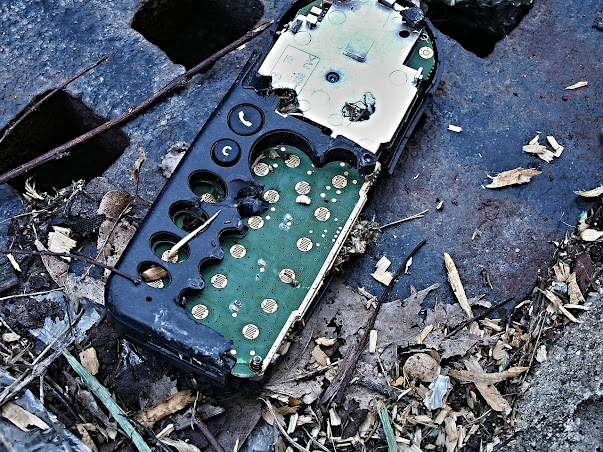Professional care
 |
| Black hole-triggered star formation https://www.flickr.com/photos/24354425@N03/49236387136 Saved under creative commons licence |
Today is the day of my second eye operation. To exchange an artificial lens for the cataract problem brought on by my first eye operation. It's cold today at 6 am, even in the layers I've put on for the occasion. And the operation's in Croydon, the scene of my last decade of work.
In my mind's eye that work is represented by a huge square concrete office building, where my team now work in open-plan air-conditioned spaces. When I worked there, my clinic was in fact based in the 'boys' end of an old brick and stone school with an unchallenged buddleia undermining its outer wall. There was a carpark full of trash blown in from the tram station outside.
Nick, my first boss there, took down a mentally ill man who had already stabbed one person in the car park and was well on his way to stabbing more on the tram station. The memory stands out because it was one of only two serious incidents I witnessed in my thirty years in psychiatry. That rarity didn't stop them bowing to pressure from the receptionists to bullet-proof the reception desk.
I remember my first arrival at that clinic. It was to meet Nick, at his special request, before starting a temporary posting as his number two for a couple of months. Croydon has always had a particular flavour for me as a West Londoner. It is like a jutting scab built up on a wound - crusty and brash and too new to be integrated into the organic bustle that is a historic British city. And Wellesley Road, named grandly after the Duke of Wellington, is the uninhabitable scar itself, straight as a sword and just as dangerous.
As I approached the old school dressed in my interview suit and uncomfortable heels (for me there is no such thing as comfortable heels over an inch), I was in some doubt as to whether I was in the right place. There was no sign at the gate, and the Victorian school so obvious in the building that I almost expected to be overrun by uniformed children on my way in. There were two doorways in traditional school manner, but there was no response at the boys door so I passed over to the girls. There I had to stand outside inspecting the fag ends and beer cans while no one answered the intercom/ camera. I had ample time to wonder if I had made a big mistake going for this job.
Once inside, the lighting was bad, but not so bad that I couldn't see the grime and neglect of it. The tramps with their bags and smells spread themselves over scraped plastic chairs. Around me were posters threatening me with the police if I should be rude or ask for the wrong thing. Three Surrey housewives gossiped behind the glass separating the smug humans from the rest of us. Despite my beliefs about us all being in this together, part of me wanted to be absolutely clear that I was not someone who belonged on the dirty side of the glass.
'Hello, I have a job interview with Dr. Tungsten at 8.30.'
'All right, have a seat.' I looked for reading material but there was none.
Nick Tungsten, once I was in, regaled me with tales of how difficult it was to remove people from his team once they were employed, and let slip the names of those of my future colleagues he still intended to oust. He didn't look at me or ask me much, but somehow I passed his inspection. This job had all the qualities of one where I could be useful to the team, and appreciated for it. So I took it.
That was what I liked about being a locum: people were grateful when you did the job competently, and told you so. You could bring relief to the staff as well as the patients, which made work a rewarding place to be. And then, instead of the inevitable graduation into the category of familiar and therefore ignoreable, I could leave and find a place where my presence would be appreciated again. I know it wouldn't be everyone's idea of a good career move, but it worked for me. For me the most important quality of work, other than being able to get home to my children, was that most of my colleagues were happy with me. Six years after I left they've all forgotten about me now of course.
All I can see of the operating theatre is the two steel mushrooms of lights on the ceiling. I can hear three different sets of people talking quietly as I am wheeled in head first, their voices damped by the unexpected size of the room:
'This black knob turns left for more, that way for less.'
'You go shopping a lot, don't you! Can you keep a look out for a blazer for me?'
'Now this one's going for minus two in the right eye. And she's had a vitrectomy by an excellent surgeon so it should be straighforward. David's a good'un, right? So tall!'
'Hospital number 4298162.'
Everything that happens is in sharp focus. I am absolutely committed and present for each second of it. I have no choice anyway, and today I'm glad. I have refused their offer of temazepam to blur it away. It's an opportunity to let go of fear.
'Yup.' The surgeon's voice behind me gets little louder and clearer. 'Can you just lift your head up a little?'
I lift my head up.
'No no no! Never never do that again, ok?'
The anaesthetist with the same first name as my sister is standing looking at me, using the knuckle of her forefinger to lift her chin. I settle my head back into the groove in the sculpted pillow and raise my chin to the ceiling.
'Thaaaat's it.' A white plastic bag descends to cover my face. 'All right?' The surgeon's checking in with me that the drape is not triggering claustrophobia.
'I thought you said the drape would be transparent.' I don't want to be a vibe killer, but they promised.
'The oxygen's showing a hundred percent so there's no need to worry about being able to breathe.' She is finished accomodating me. But feeling unable to breathe is not my problem. I am momentarily distracted, wondering what my problem is with having a plastic bag over my face, and finding nothing. A portal through the white bag opens over my right eye to a trio of bright blue-white lights that stab, even through my cataract fog.
'Look straight at the lights.'
As I choose to surrender to staring directly at the stab, and soothing water washes my eye, the lights change shape. Each time the coolness moves around my eye the shapes change into stars, become star-birthing galaxies, merge into wormholes. The colours change as they move from white to blue to rainbow to purple. Noises now emerge at my right, swooping and swooning and grinding like the weird noises from a musical saw, mutating with the eye-washing water. It is strange and beautiful and as if at a remove from my own thoughts I see that I am not scared. And the lights focus and I can see for the first time that they were made up of tiny square cells of light in three shifting groups. Which means the deep cataract-fog has finally gone.
Every cell in my body is rinsed in a wave of gratitude towards this odd brusque person who has done this for me and I want nothing more than to give her a hug.
'Only half past ten and I'm finished for the morning! It's already worth getting up at sparrow's fart!'
As the nurses take off the drapes and raise the head of the gurney, the surgeon peeks around an imaginary wall and asks with a big grin, 'I bet you can see me clearly from there! I bet you can read that...', pointing to a blurr on the side of a machine. '...even without glasses! I'm minus two and I can read that!'
I can't, I have water and a plastic eye shield in the way but I give her her due, 'It's all so much clearer, the fog has gone, thank you so much.'
Sitting in the wheelchair waiting for the nurse to take me back to the recovery room, I cry. I don't know why and it doesn't matter. I ask for a tissue and tidy away the evidence.
Back in the recovery room the beige multifunction chairs that held three other grey-haired women with eye shields are now empty. All the nurses have to do is a couple of blood pressure readings and my discharge paperwork and they can leave early and go shopping for blazers.
I had made it clear that I was going to dive on a cup of tea like a terrior on a fieldmouse when I returned, so the nursing assistant Tracy, with bleached hair and striped uniform, jaunts to my chair bearing a neat tea tray and a smile. I'm having a hot-and-cold flush, like you do just before you throw up. I close my sore eye under the plastic patch and lean my head on my hand.
'No no that's the one thing you mustn't do!' Naomi, professionally repetitive in her dark blue uniform, 'Don't put your head down. Don't look down. You mustn't look down it increases the pressure in the eye.'
I sit up straight and try without looking down to take a sip of tea and a nibble of shortcake to settle my stomach.
'All right? All better?' The surgeon is here with her hair down looking tiny and youthfully excited about her early release from the operating theatre. 'Her lens was a rock! A rock!' As she walks away I can see that she's wearing those boots that look as if they have wetsuit fabric pulled up over the three inch heels and all the way to her knees. It's a fashion from five years ago but on her it looks just right. And she sweeps out.
'How's the tea?' The nurse still expects me to relish it.
'I'm feeling hot and a bit sick.'
'Don't drink the tea! You don't want to be sick and raise the pressure in the eye!'
'I thought it might settle my stomach.'
She doesn't respond, but crosses the room to open the window. I am aware of the fine net curtain billowing in the corner of my new vision as the January air rushes in. I close my eyes. The right eye is sore of course and the muscles around it and down the back of my neck are tense and sore too. But the real problem is that my body just wants to lie down like a wounded dog and whimper until it's over.
'You're hot, the cool air will help.'
'It's nice, thank you but it's not that. I don't feel right.'
'In what way?'
In the way I did once when I was given a beta-blocker and my blood pressure was no longer able to push the oxygen into my brain. I lost consciousness whenever I tried to sit up until my wonderful kidneys had expelled the drug.
'I feel faint. I want to lie down.'
The nurse in charge lifts the lower part of my chair to raise my feet, and the nursing assistant behind my head fiddles with levers until my head is supported slowly backwards and as it descends the foot rest is pulled vertical at calf level. I find a way to rest with my knees up around my left armpit. I'm thinking it's lucky I'm flexible.
'Let's see if we can...no...what's that lever do?...I think it's attached to the back raise, maybe if we...' I am in fact feeling a bit more like myself now my eyes are closed and my head below my knees. One of the nurses is behind me again, testing each lever in turn. Talking about trying again to get the chair straight. But the last thing I want is to be pushed back into vertical.
'They forgot about you the moment they left,' says A, right on the money as usual.
.jpg)


Comments
Post a Comment
Tell me what you think about this idea, your experiences, or just what comes to mind when you read this.